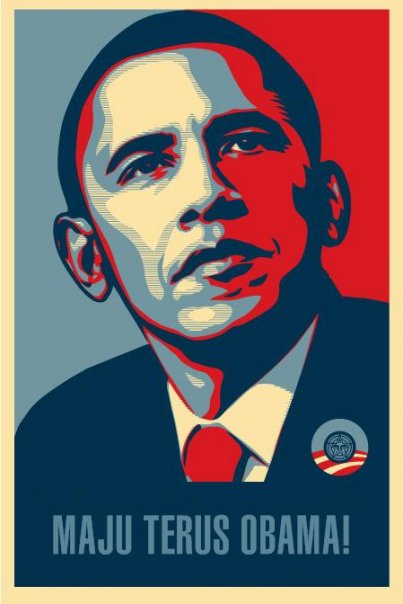In economic relations, the Democrats will focus on domestic welfare and economic growth, particularly during the current financial crises.
Obama himself made a pledge to begin the work of remaking the US. He emphasized that he would act to create new jobs and to lay a new foundation for economic growth. So no matter which way you look at it,, it is more likely that the Obama’s administration will carry out a more protectionist economic policy, which in the long run could be quite detrimental to Indonesia.
In political and security relations, President Obama underlines the role of the US in ushering a new era of peace. He proclaims US leadership once again for those who seek a future of ‘peace and dignity’.
The predicament with the Jakarta-Washington relationship comes down to US priorities. As the most populous moderate Muslim-majority state, Indonesia can indeed be one of the greatest allies for the US in the ongoing war against terrorism. However, human rights issues still top the agenda for Indonesia-US relations, particularly the case of West Papua. So in terms of perception, there is still a very large question mark hanging over Indonesia–US bilateral relations. Indonesia has to prove its trustworthiness for the US national interest in order to forge a strategic partnership between the two countries and cannot depend only on the emotional memories of President Obama for that.
Obama’s victory nevertheless brought some positive feelings to policymakers in Jakarta, as well as to ordinary Indonesians. Firstly, it has undeniably marks a change from Bush’s policies, as well as his approach. In terms of political atmosphere, Indonesia is welcoming its general elections, expectantly, and Obama’s success would further stimulate democratisation in Indonesia.
Secondly, President Obama is perceived as a person who can convey a new image of the United States. Many people believe, especially Muslims around the world, that Obama will do better because he seems to understand Muslim culture better than his predecessor — because he had a father who was once a Muslim and lived, for a time, in a predominantly Muslim culture. This familiarity, and understanding, cannot be a bad thing.
It would naïve to expect that Indonesia will become a significant partner for the US just because the current president lived in Indonesia for 4 years during his childhood.
It is up to Indonesia to define a strategic partnership that can serve both the US’ and Indonesia’s national interests. If it can, Indonesia will gain more leverage in bilateral relations with the US. Perhaps, then, the euphoria in Indonesia at Obama’s victory will translate into something more than the excitement of a innocent honeymoon period.
—
Alexandra Retno Wulan is a researcher at the Department of Politics and International Relations, Centre for Strategic and International Studies (CSIS), Jakarta and is currently active in the Indonesian Security and Intelligence Reform Working Group.

